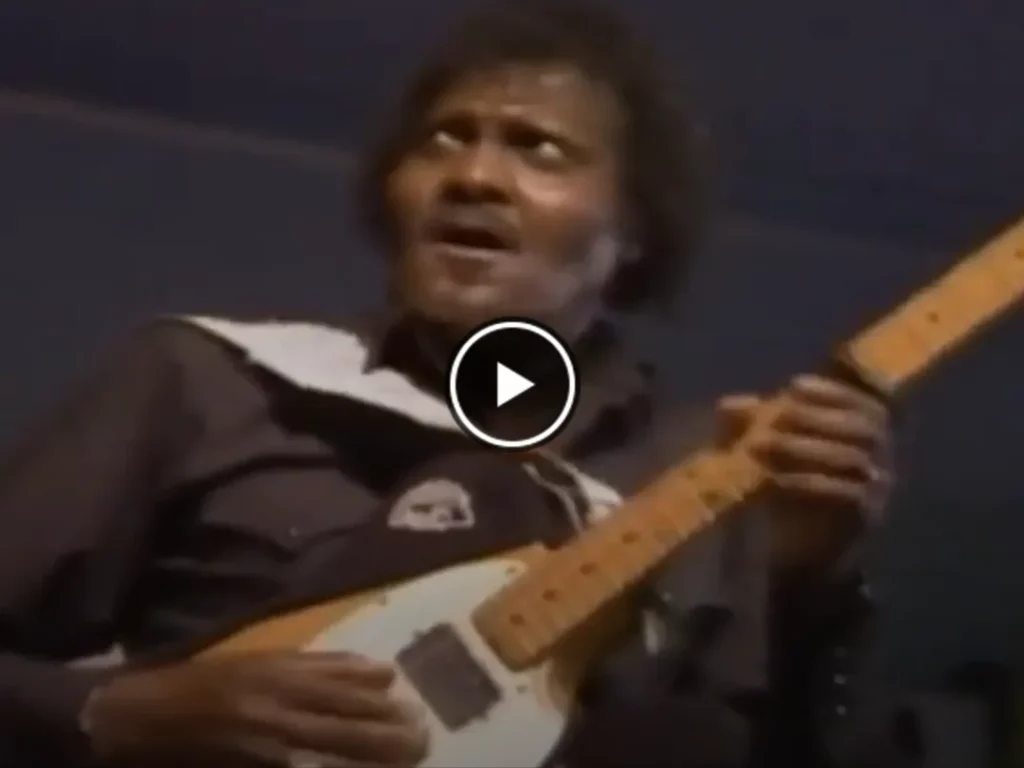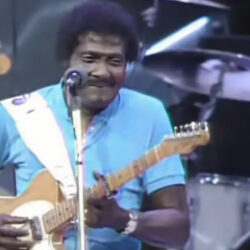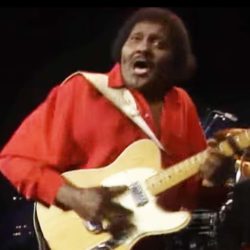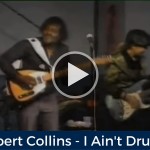
Engage your senses: Press play on the video, then stimulate your brain with the article.
Albert Collins
Albert Collins was an American electric blues guitarist and singer with a distinctive guitar style. Collins was noted for his powerful playing and his use of altered tunings and capo.
Albert Collins, “The Master of the Telecaster,” “The Iceman,” and “The Razor Blade” was robbed of his best years as a blues performer by a bout with liver cancer that ended with his premature death on November 24, 1993. He was just 61 years old.
Albert is most famous for his fingerstyle playing, “open F-minor tuning,” use of a capo and live performances.
“He was just naturally one of the most exciting and energetic live artists I’ve ever seen,” said Alligator Records owner Bruce Iglauer, who co-produced Albert Collins’ output for the label.
His music isn’t always pretty, and it certainly doesn’t have classic form, but it always has a feeling. You never know what Collins’ fingers will produce — it sounds as if he doesn’t either — but his solos never fail to dazzle.
Albert Collins – I Ain’t DrunkAlbert “Iceman” Collins (1932-1993) – an American blues singer and guitarist. Texan played guitar from an early age. Growing up in a musical environment Collins had a lot of inspiration, like his cousin – known guitarist. At age 20, formed a band the Rhythm Rockers. Collins, next to B.B. King and Albert King is one of the pantheon of blues guitarists, having a significant impact on today’s guitarists, not just blues one.
Albert began his career in the late 1960s, recorded over 20 albums. Mentioned as the inspiration of many musicians of later generations, including Jimi Hendrix and Stevie Ray Vaughan
Collins was born in Texas in 1932, he was the cousin of the famous guitarist Lightnin ‘Hopkins. He played the guitar from his early youth, he moved to Houston when he was 7 years old. The first group – the Rhythm Rockers – was founded in 1952. Six years later, he recorded “The Freeze”, his debut single for Kangaroo Records. Collins’s later pieces, often instrumental, also referred to winter themes, such as “Icy Blue”, “Do not Loose Your Cool” or “Defrost”.
The biggest hit of Collins turned out to be the instrumental song “Frosty” released in 1962, which sold millions of copies. In 1968, after a joint concert with Canned Heat in California, Bob Hite introduced him to Imperial Records, who agreed to release Collins’ solo album.
In 1978, he joined Alligator Records, where he recorded 7 albums, including one with the participation of two other famous blues guitarists: Robert Cray and Johnny Copeland.
Video
Thank You
We appreciate your time and dedication to reading our article. For more of the finest blues guitar music, make sure to follow our Facebook page, “I Love Blues Guitar”. We share exceptional selections every day. Thank you once again for your continued support and readership.





